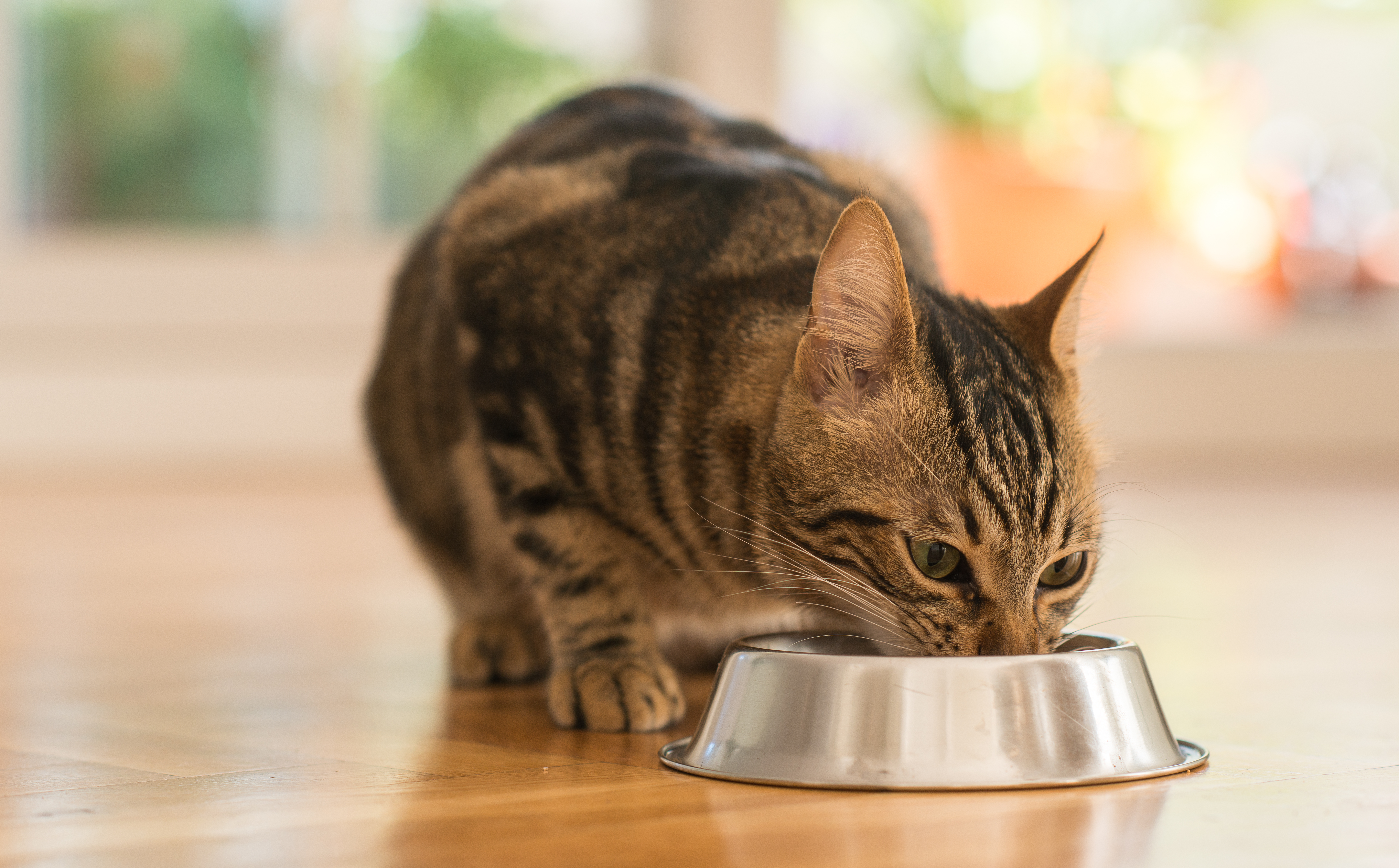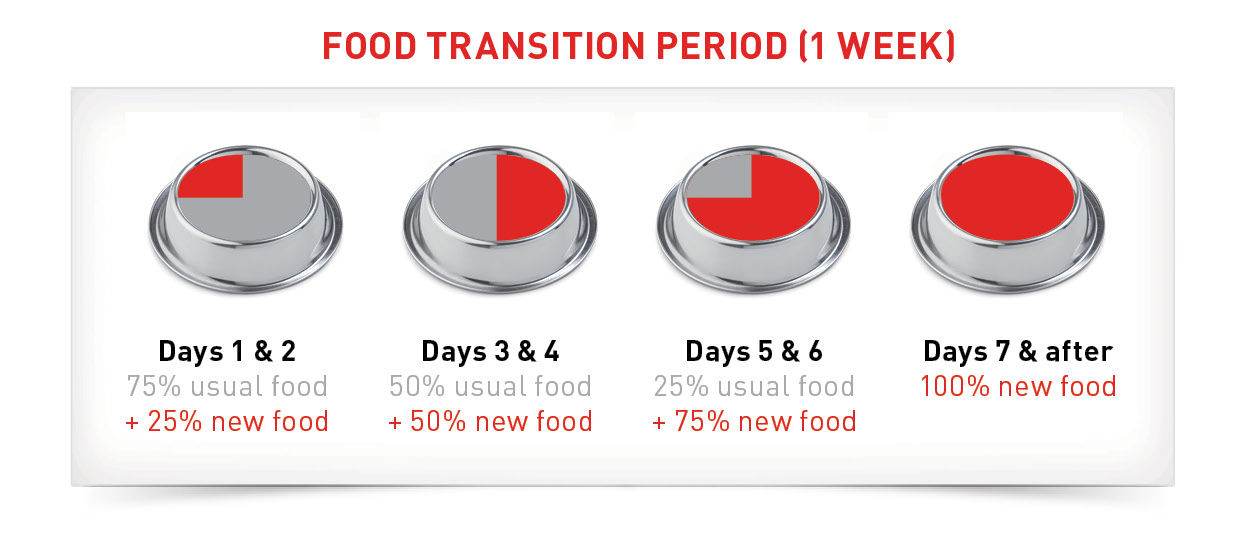How to transition your kitten to adult cat food
Article

Why Make the Switch to an Adult Formula?
During the growth phase, a kitten’s energy requirements are higher than those of an adult. Some nutrient levels needed for growth as a kitten may be higher than the nutrient levels needed for adult maintenance. Below are examples of the nutrient levels needed for adult cats compared to that of kittens:
- Lower calories: Once cats reach adulthood, they are typically finished growing and not as active as they were as a kitten. Adult cats no longer need as many calories as they did as kittens, and the calories per cup and per can are lower in adult cat food.
- Some fats and fatty acids are now optional: Adult cats no longer require certain fatty acids that were necessary as kittens.
- Calcium, phosphorus and magnesium needs are lower for adults: Kittens need higher amounts of these minerals for bone growth and other functions. While these nutrients are still an important part of an adult cat’s diet, they do not need as much as they did as a kitten.
Cats have specific health needs that are often characteristic of their breed or lifestyle. ROYAL CANIN® formulas are precisely tailored to the specific needs of your cat. If you have additional questions about choosing adult formula types, consult your veterinarian for guidance.
How to Introduce Adult Cat Food
When transitioning to an adult cat food formula, a gradual switch over a period of about one week helps minimize intestinal upset. This same gradual transitioning of formulas should be done any time you change your cat’s food.
Below is a simple one-week guide to help make the switch to adult cat food as seamless as possible:

Like & share this page